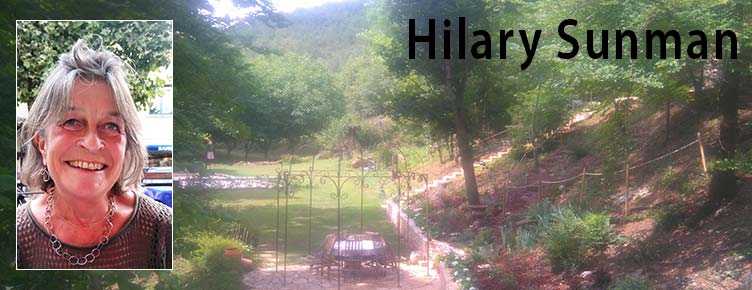Reviews of 'A Very Different Land'
People have been generous in their comments about the book. Jonathan Prynn from the Evening Standard wrote
'Hilary Sunman has written a fascinating account of how a naive young man - her father - was dispatched to run a chunk of the empire towards the end of Britain's colonial stewardship of Kenya. It is an invaluable reminder that - far from the excesses of Mau Mau and White Mischief - hundreds of men like Owen quietly set out from these shores each year to try to do the decent thing in the far flung patches of the map coloured pink'.
Other reviewers have written:
A perspective on colonialism – an interesting book giving a different perspective on Kenya before 1950, not the usual Happy Valley story but the serious commitment of civil servants of whom much was expected and much given. I learned from this book, it is not heavy reading and I found it absorbing. Jane D
A fascinating look at a world now disappeared but still with relevance. Hilary Sunman has written of the experience of her parents in Kenya not just as a daughter but as a development economist, a combination which is both moving and illuminating. Michael Prior
A very different book - I thoroughly enjoyed this book on many levels. It was so pleasant to read something in a more literary style about development, rather than the usual technical or academic books. Combining the family story with colonial history the author has put some heart into history, which works really well. It captures images and paints a complex and nuanced picture that most books on the colonial and post-colonial/development eras fail to capture. Also, by including social and cultural aspects, music and the church, it portrays real life not just economics or politics. Highly recommended for anyone interested in Africa and development. Alan Hall
I really enjoyed this fascinating book, which was both extremely interesting and highly readable. There are so many dimensions all linked by the author's family connections and experience. I think I will be buying a few copies of this as Christmas presents. CAT (London)
Parmeet Singh, formerly of the Kenya government service and later the Commonwealth Secretariat, reviewing the book for the Overseas Service Pensioners Association, wrote that
the book is an articulate and well written narrative on the state of governance in Kenya in the 1930s and '40s - the tensions and hostilities that accompanied the early years of Kenya – tussles between settler and government, between settler and the Indian population and between settler and African – all of which centred around land, which lay at the heart of politics in Kenya. The scope of Kenya's history covered in the book makes for captivating reading. There is a fair amount of endearing anecdotal mention of places, events and personalities, an abundance of living memories. In the chapter on Reflections the author writes of her wish "to redress the balance, to try to undo the malign legacies of the Empire" as the rationale for her pursuit of a career in development economics. This sentiment will find much empathy amongst the membership of OSPA.
"The vanished world which helped to make our own." Review by Jim Reed on 24 July 2015:
This is not the easiest of subjects, but Hilary Sunman researched it in meticulous detail and includes copious references to support her narrative of development in Kenya in the late colonial period. The part played by her parents in this work seems to have been typical of many in the old Colonial Service - thoroughly embedded in and committed to their own society but striving to develop agriculture and trade, and genuinely seeking to balance the interests of the indigenous population alongside those of white settlers, Asian immigrants, and other sections of the growing population.
That mistakes were made both in seeking that balance and in developing the farming economy is beyond doubt. But Sunman's history explains why and how such mistakes were made, how they were sometimes remedied and how others remained and festered. She touches on the successes but also some difficulties arising from changes in land use, cropping and the progressive intensification of farming, and brings out how the drive for greater output in wartime led inexorably to population shifts, soil degradation and accelerating resentment amongst the Africans and especially the Kikuyu - a key factor over time leading up to the Mau-Mau emergency prior to independence.
On a human level, there is sadness in the story of Owen and Dorothy Sunman who lost several babies before Hilary was born in 1947. And after their return to rural England in 1949, an unrewarding venture into active farming must have been a great disappointment. But the book also hints at the fun and fulfilment achieved by the couple, most particularly through church music and choirs both in Africa and after Owen took holy orders in the 1950s.
This book is self-evidently written by a development economist - Sunman knows what she is talking about. But the personal elements serve to elevate and enliven what otherwise would merely review development policy under colonial rule. Thus, while readers involved with third country development can profit from the history, a much wider audience could enjoy and gain from the insights into what a previous generation thought it was doing - and did - in "A Very Different Land".
